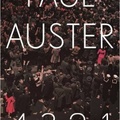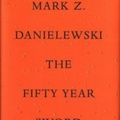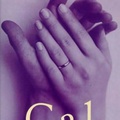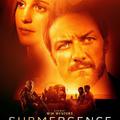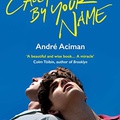Jon Krakauer: Into the Wild

This book started out as a magazine article written by Jon Krakauer in 1992 about the fate of Chris McCandless, a passionate, stubborn and extremely idealistic young man who strove to live life to the fullest. As a part of this, Chris entered into the wilds of Alaska in the spring of 1992 to live out of civilization for an indefinite period, relying only on his own strength and cunning. Everything went just fine for a while but Chris committed a couple of grave mistakes, so the not-too-expertly planned and executed experiment in hermit life finally cost him his life.
Jon Krakauer’s book follows Chris’s wanderings through the continent and also gives us an account of the young man’s family background and childhood experiences. Based on all these, he tries to find the reason why Chris decided to leave his perfect life and a promising career behind and settle for a tramp’s life full of uncertainties, struggles and sacrifices.
I didn’t mention at the beginning of this post that it contains spoilers because the fact that Chris meets his death during the course of the events is stated right on the cover of the book. What’s more, this book tells a true story, it’s non-fiction, so supposedly you don’t have worry about the turns of the narrative the author might have come up with. However, Into the Wild is different from a regular non-fiction book (or perhaps there’s no such thing as true non-fiction – at least I haven’t read any books about real events which contained only facts, data and „reality”, and didn’t contain any emotions or anything made-up), it’s more like Truman Capote’s In Cold Blood: it’s an overtly emotional work which doesn’t only affect the reader’s mind and which contains a whole array of poetic, exaggerated or obviously fictitious details.
Krakauer read Chris’s journal entries, conducted several interviews with his family members and acquaintances, and in general, thoroughly researched his topic, so in the end he might have had a pretty good idea about Chris’s personality and the way the boy might have reacted to certain events. Still, writing sentences such as „Chris exclaimed happily when he shot this or that animal” is anything but „real”. Yes, Chris might have exclaimed happily but since no-one was there with him in the woods and no-one heard him, this is a detail which is impossible to prove.
This is not to say that I was bothered by these made-up elements in the book, not at all. Actually, I was quite delighted in the fact that Krakauer constantly mixed the facts with highly emotional and/or fictitious passages, and even though I knew that the „protagonist” was dead, I kept expecting secretly that the omnipotent author would intervene, change everything for the better and tell me that the two often referred-to big mistakes Chris committed turned out not to be fatal after all. Of course this didn’t happen – even though Krakauer made up several details of the book, unfortunately he didn’t have it in his power to change such basic facts as the one that Chris had died.
And this is painful as I always wish if no bad thing ever happened to men like Chris – somewhat incautious, striving for freedom from constraints, with a head full of literature and philosophy – and if they succeeded in all their foolish but harmless experiments to live their lives as they wanted to. (It may or may not be a surprise but I’m not someone dreaming about abandoning my city life for a life in the woods, I can’t quote whole passages from Thoreau’s Walden woken up from my sleep and I definitely don’t like to take unnecessary risks. But I respect those people who don't just dream and talk but actually do something about living this kind of life if this is what they want.)
By the way, several people told me that that the movie version of this story is even better than the book. I haven’t seen the movie, but if this is indeed the case, then it must be almost unbelievably good since the book is excellent and very well balanced in itself: Krakauer writes in an emotional and honest way about an intriguing and very likeable young man while relying on the available facts as much as possible – but he doesn’t turn Chris into a major tragic hero. And this combination of facts and emotions, admiration and objective outlook results in exactly what I love in a book: the story of Chris affects and touches me deeply, but the book is not pathetic or kitschy. It’s simply good.
(And I consider the cover pictured above beautiful. It’s gloomy and ominous, just like the wild where Chris died, and not falsely light and happy-looking like those covers which show Chris sitting on top of the bus.)
Jon Krakauer’s book follows Chris’s wanderings through the continent and also gives us an account of the young man’s family background and childhood experiences. Based on all these, he tries to find the reason why Chris decided to leave his perfect life and a promising career behind and settle for a tramp’s life full of uncertainties, struggles and sacrifices.
I didn’t mention at the beginning of this post that it contains spoilers because the fact that Chris meets his death during the course of the events is stated right on the cover of the book. What’s more, this book tells a true story, it’s non-fiction, so supposedly you don’t have worry about the turns of the narrative the author might have come up with. However, Into the Wild is different from a regular non-fiction book (or perhaps there’s no such thing as true non-fiction – at least I haven’t read any books about real events which contained only facts, data and „reality”, and didn’t contain any emotions or anything made-up), it’s more like Truman Capote’s In Cold Blood: it’s an overtly emotional work which doesn’t only affect the reader’s mind and which contains a whole array of poetic, exaggerated or obviously fictitious details.
Krakauer read Chris’s journal entries, conducted several interviews with his family members and acquaintances, and in general, thoroughly researched his topic, so in the end he might have had a pretty good idea about Chris’s personality and the way the boy might have reacted to certain events. Still, writing sentences such as „Chris exclaimed happily when he shot this or that animal” is anything but „real”. Yes, Chris might have exclaimed happily but since no-one was there with him in the woods and no-one heard him, this is a detail which is impossible to prove.
This is not to say that I was bothered by these made-up elements in the book, not at all. Actually, I was quite delighted in the fact that Krakauer constantly mixed the facts with highly emotional and/or fictitious passages, and even though I knew that the „protagonist” was dead, I kept expecting secretly that the omnipotent author would intervene, change everything for the better and tell me that the two often referred-to big mistakes Chris committed turned out not to be fatal after all. Of course this didn’t happen – even though Krakauer made up several details of the book, unfortunately he didn’t have it in his power to change such basic facts as the one that Chris had died.
And this is painful as I always wish if no bad thing ever happened to men like Chris – somewhat incautious, striving for freedom from constraints, with a head full of literature and philosophy – and if they succeeded in all their foolish but harmless experiments to live their lives as they wanted to. (It may or may not be a surprise but I’m not someone dreaming about abandoning my city life for a life in the woods, I can’t quote whole passages from Thoreau’s Walden woken up from my sleep and I definitely don’t like to take unnecessary risks. But I respect those people who don't just dream and talk but actually do something about living this kind of life if this is what they want.)
By the way, several people told me that that the movie version of this story is even better than the book. I haven’t seen the movie, but if this is indeed the case, then it must be almost unbelievably good since the book is excellent and very well balanced in itself: Krakauer writes in an emotional and honest way about an intriguing and very likeable young man while relying on the available facts as much as possible – but he doesn’t turn Chris into a major tragic hero. And this combination of facts and emotions, admiration and objective outlook results in exactly what I love in a book: the story of Chris affects and touches me deeply, but the book is not pathetic or kitschy. It’s simply good.
(And I consider the cover pictured above beautiful. It’s gloomy and ominous, just like the wild where Chris died, and not falsely light and happy-looking like those covers which show Chris sitting on top of the bus.)

